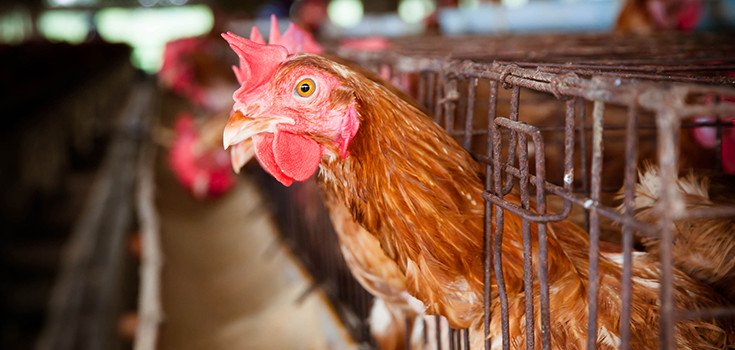California 1st State to Pass Bill Banning Indiscriminate Antibiotic Use in Livestock

California has become the first state in the nation to ban the use of antibiotics in livestock for any other reasons other than to prevent or treat illness.
Gov. Jerry Brown recently signed a bill that will effectively ban the routine use of the drugs in the animals. [1]
“California is a big agricultural state, and it often is a bellwether for the nation. We often see the FDA following suit or other states following suit,” said Elisa Odabashian of Consumers Union, a supporter of the bill, speaking of the U.S. Food and Drug Administration.
Consumers Union, the policy arm of Consumer Reports, says that roughly 70% of medically-important antibiotics are given to livestock in the U.S. These drugs are the same kind used in human medicine. The antibiotics are intended to promote growth and prevent disease in food-producing animals, but their overuse is a significant contributor to the 2 million illnesses and 23,000 deaths caused by drug-resistant “superbug” bacteria each year, according to the Centers for Disease Control and Prevention (CDC). The agency has recommended phasing out antibiotic use in otherwise healthy livestock. [2]
“The science is clear that the overuse of antibiotics in livestock has contributed to the spread of antibiotic resistance and the undermining of decades of lifesaving advances in medicine,” Gov. Brown said in a statement.
In 2012, the FDA released rules designed to restrict the meat industry’s dependence on antibiotics, but those rules were voluntary and relied on the altruism of the meat and pharmaceutical industries. Furthermore, a loophole in the rules allowed meat producers to continue to feed their animals with antibiotics if they opted to.
Related: Could Oregano Oil Replace Antibiotics for Livestock?
Under the FDA’s 2012 rules, meat producers were permitted to give livestock antibiotics to prevent disease. This essentially allowed meat producers to continue giving the animals small doses of antibiotics to promote growth; they just did it under a different heading.
Now, antibiotics can be used as “prophylaxis to address an elevated risk of contraction of a particular disease or infection,” but the drugs can no longer be used “in a regular pattern.” In other words, meat producers can’t dish out the drugs indiscriminately on a daily basis. [3]
“We think this [the “regular pattern” language] puts serious restraint on the routine use of antibiotics,” Natural Resources Defense Council senior attorney Avinash Kar explained.
An earlier version of the recently-signed bill, SB27, was harshly criticized by Consumers Union and other environmental and public health groups, which said the guidelines weren’t strict enough. Consumers Union helped the governor specify in the guidelines when antibiotics may be used for prevention.
The new rules are mandatory and effectively close the loophole created by the FDA in 2012.
The new law is set to go into effect in January 2018. Meat and egg producers from outside of California won’t be affected.
Sources:
[3] Mother Jones
